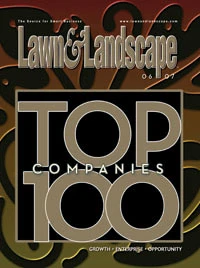Leadership is a nebulous concept. It’s not only hard to define, it’s much more difficult to learn and implement. In “The Effective Executive,” Peter Drucker offers timeless insight on effective leadership. Drucker contrasts managers’ roles as compared to the roles of executives. A manager’s primary responsibility is to get things done right. Whereas a leader’s primary responsibility is to get the right things done.
|
|
Managers must be efficiency experts while leaders must focus on effectiveness. If you just focus on efficiency, your company won’t grow.
Too often, though, entrepreneurs get stuck in their thinking and they get into mental ruts that prevent them from thinking “outside of the box.” Usually, they
only think in terms of technical or “job” issues. Often the technical thinker fails to see the value of planning, implementing systems and building a high-performance team. Unable to multi-task, step back and see the big picture; this owner rushes from one crisis (job) to another.
The “technical” thinker reaches maximum annual sales between $300,000 and $400,000. It’s at this point that an intellectual metamorphosis must take place. Entrepreneurs who successfully transition through this stage and grow their companies learn to think differently.
First, they realize the importance of planning and effective mental reflection. Second, they compartmentalize the way they view their businesses. They realize efficiency is important, though it should be the primary focus of managers and crew leaders.
The entrepreneur, on the other hand, realizes, to become successful and take their company to the next level, he or she needs to focus on effectiveness.
Landscape entrepreneurs should ask “strategic” questions, such as:
- Am I working on the right tasks/problems?”
- “Is my team working on the right tasks/problems?”
- “Where should I focus my energy?”
- “What threats or opportunities are we missing?”
- “Are the right IT systems in place to grow the company?”
- “Is the right team in place to grow the company?”
- “What don’t I know or don’t I see?”
These questions are “strategic” as compared to “tactical” because tactical issues relate to specific tasks. Strategic ones, instead, deal with big-picture issues, such as threats and opportunities. This is where effective entrepreneurs, who grow their companies, spend most of their time.
Here’s a measurable (objective) and an intuitive (subjective) benchmark to determine if you have the right team and IT systems in place. I call the intuitive benchmark the concept of “minimal supervision.” Your team should meet your budgeted sales and profit goals (an objective benchmark) with minimal supervision (a subjective benchmark). Your team should get things done right the first time and not need to be constantly reminded what they need to do or do over.
In previous issues I’ve talked about the five transitional administrative plateaus that a green industry business goes through as they grow to $5 million. It is this process of mental reflection that allows entrepreneurs to grow their businesses through the five plateaus. As Drucker points out, what entrepreneurs focus upon determines what they get. If you focus upon minutiae, you’ll never get beyond it.
The author is president of J.R. Huston Enterprises, a Denver-based green industry consulting firm. Reach him at 800/451-5588, benchmarking@gie.net or via www.jrhuston.biz.

Explore the June 2007 Issue
Check out more from this issue and find your next story to read.
Latest from Lawn & Landscape
- ExperiGreen, Turf Masters Brands merge
- EquipmentShare cuts ribbon on new Maryland branch
- Strathmore acquires Royal Tree Service in Montreal
- In a new direction
- The December issue is now live
- Ignite Attachments debuts 80-inch, severe-duty bucket
- EquipmentShare breaks ground on Roswell branch
- NaturaLawn of America adds Schwartz, Medd to operations team






